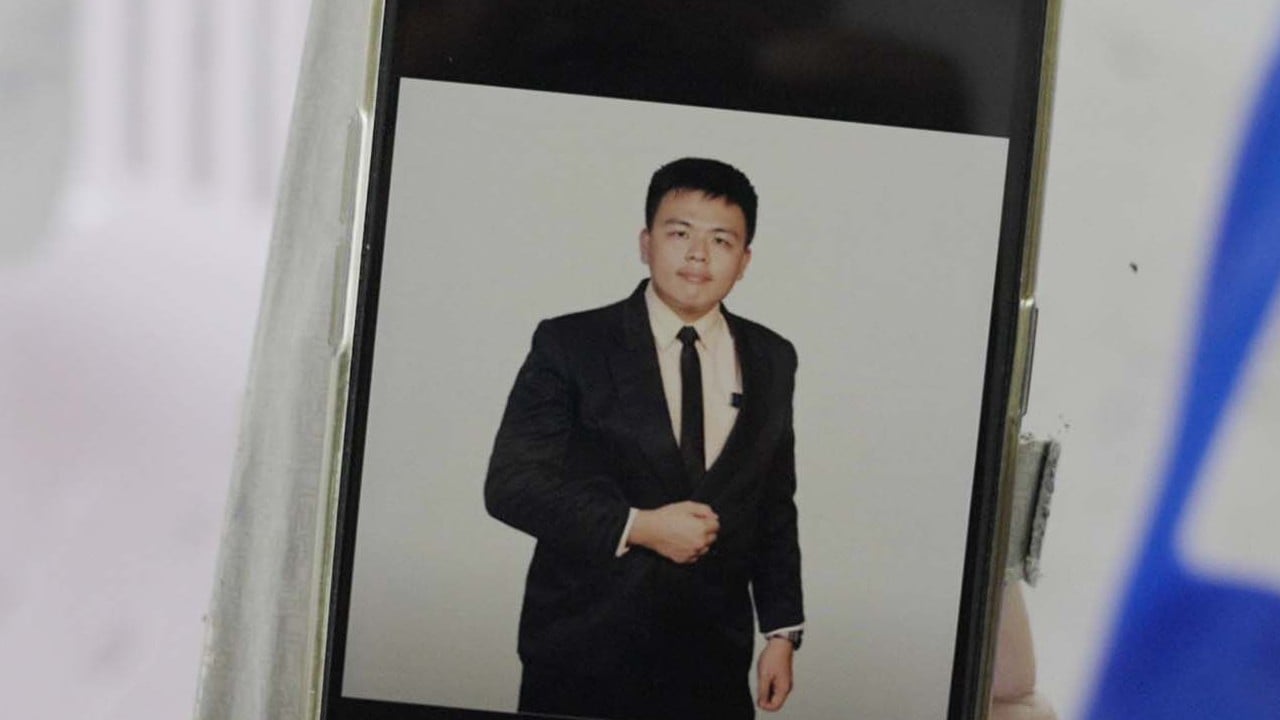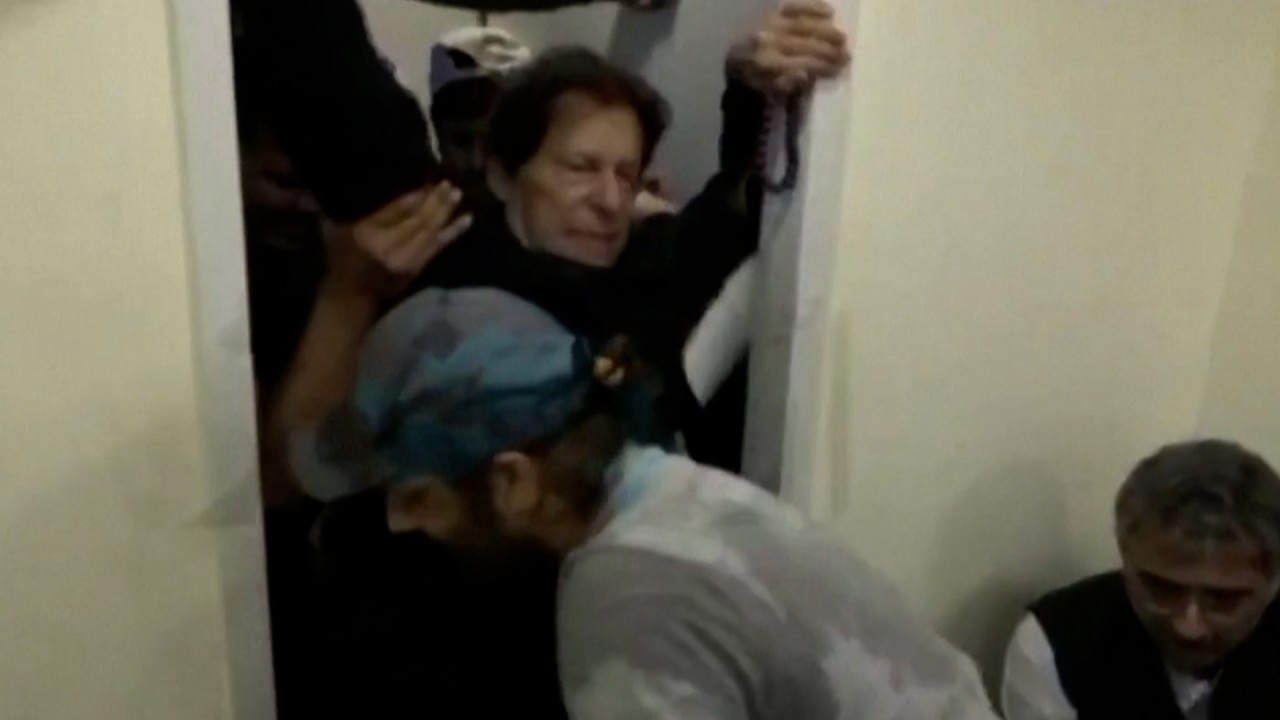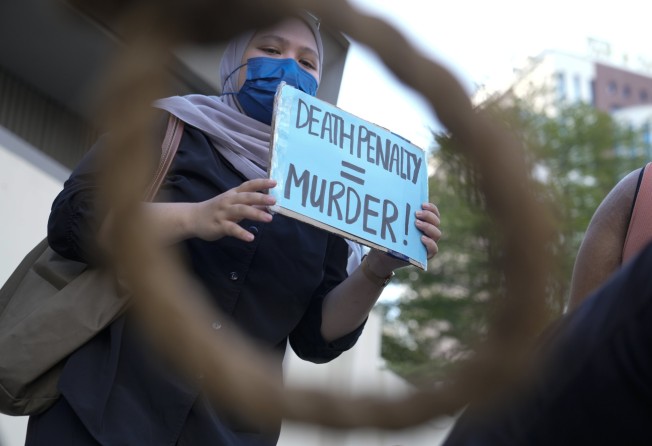
Shinzo Abe killed, Najib Razak in jail, Chinese-run scams: crimes that gripped Asia in 2022
- More tragedy in Thailand over massacre at nursery, murder of South Korean subway worker by her stalker, brazen attack on Filipino broadcast journalist
- Asian nations in soul-searching mode after scams, shootings highlight deep problems involving drugs, online fraud and role of Chinese agents

It was the year that Asia got scammed – hundreds of millions of dollars conned from innocents through ruses targeting a public glued to the internet. To make matters worse, it was the region’s youth who did the scamming, many tricked into cyber slavery with devastating consequences.
But 2022 was also marked by assassinations, bomb attacks and mass shootings; the downfall of nefarious politicians – the admonishment of weed-smoking Olympians – the unspooling of massive Chinese crime gangs and the continued pursuit of billion-dollar con men. This is a year in Asian crime.
It was a grim start to the year in Singapore where a teen with a gaming addiction killed his father after he apparently limited his son’s screen time.
In February, as digital scams began to billow out, it was an analogue crime which made the headlines from India, as a man confessed to decades of overlapping sham marriages which started in 1979 to swindle money from 27 wives.

Singapore dominated the headlines in April after hanging Nagaenthran K. Dharmalingam, a Malaysian with an IQ of 69 and the mental age of a minor, a dozen years after his arrest for carrying 42 grams of heroin. The lack of reprieve saw criticism poured on the city for enforcing the death penalty – including by British billionaire Richard Branson.
Also in April, tensions spilled over in Pakistan’s restive Balochistan region, where three Chinese nationals were among four people killed in a suicide bombing. Separatists in the province have been battling the Pakistani government for greater autonomy and have also regularly attacked Chinese targets involved in Beijing’s Belt and Road Initiative projects there.
Shock gripped Japan in July after former prime minister Shinzo Abe was shot dead in broad daylight – and captured on TV – by a man wielding a home-made gun, rattling the country’s reputation as among the safest nations in Asia.
The assassination exposed the Unification Church’s close ties with the ruling party and put the spotlight on other South Korea-based “fringe” religious groups.

August saw Singapore’s only Olympic gold medal-winner Joseph Schooling lose some of his lustre after admitting smoking cannabis while on a training camp – reviving debate on the country’s unmovable line on Singapore citizens taking drugs overseas.
Meanwhile Malaysia’s scandal-clad former prime minister Najib Razak was jailed for 12 years over the 1MDB scandal – despite his continued pleas of innocence.
Yet for alleged 1MDB Malaysian co-conspirator Jho Low, life on the lam continued with speculation of his whereabouts raising eyebrows but yet to yield an arrest.
In Japan, a 15-year-old girl who stabbed two people in Tokyo’s Shibuya district and expressed intention to kill her family has refocused attention on the country’s troubled youth who have nowhere to turn in times of distress.
September brought tragedy as the parents of a young Malaysian trainee teacher cremated the body of their child in Thailand – a victim of Asia’s dark scam world. The case highlighted the rising human toll of an industrial scale fraud, run by Chinese syndicates from lawless parts of Cambodia, Laos and Myanmar.
Officials said Chinese nationals, who oversee each scamming network, had converted entire hotels in Cambodia into scam call centres, with each floor housing people of different nationalities targeting compatriots in their home countries.
“These compounds have armed guards, razor wire and barricades – you can’t go in and out,” said Police Lieutenant-General Surachate Hakparn, who led Thailand’s trafficking response.
Authorities from Thailand to Singapore also warned their nationals against falling into the scam traps – but the scam gangs adapted fast and continued their grim harvest of bank accounts.
The proliferation of Philippine offshore gaming operators and the resultant string of crimes – including kidnappings, murder, torture and allegations of workers being “enslaved” – led authorities to crack down on the online gambling industry and President Ferdinand Marcos Jnr to consider a ban on all activities in the sector.
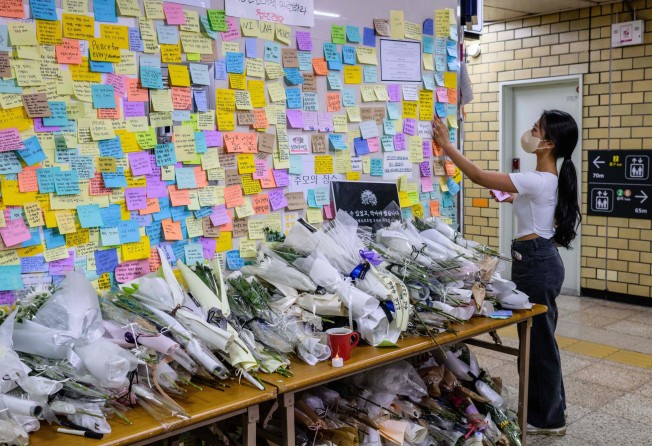
There was more tragedy in South Korea when a subway worker was killed by her stalker in Seoul, the latest in a spate of high-profile murders of women at the hands of their stalkers. The crime prompted a review of an anti-stalking law barely a year after it came into effect.
In what the public feared could be a repeat of the infamous “Nth Room” case, South Korean police were also hunting down a criminal mastermind – given the alias “L” – allegedly involved in coercing minors to perform sexually degrading acts on camera and profiting from their distribution and sale to users through the private messaging app Telegram.
Despite a law imposed last year to combat digital sex crimes, they continued to proliferate “faster and more easily than ever”, according to activists.
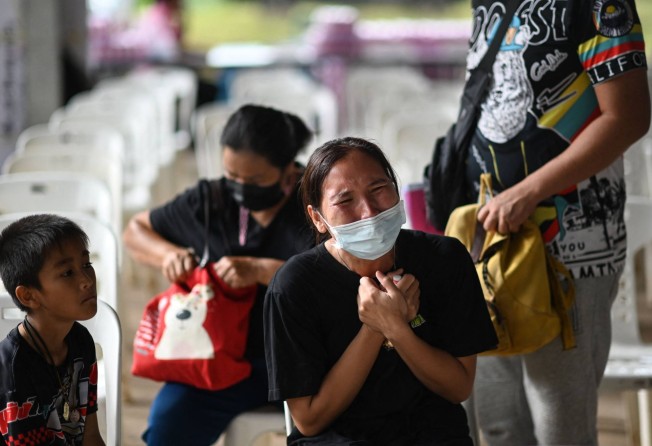
Thailand was united in grief and horror in October after a former police officer with a drug problem opened fire on a nursery massacring 36 people, most of them children.
The rampage ignited soul-searching over Thailand’s deep problems with drugs and guns leading to raids and arrests through November. Those kicked up uncomfortable questions over the nexus between Chinese criminals and Thai authorities. In December the scale of those criminal enterprises on Thai soil by alleged Chinese gangsters continued to emerge.
Filipinos were shocked by the brazen attack on radio journalist Percival Mabasa, who was killed while on his way to work. The Philippines’ prisons chief has been accused of masterminding the murder of Mabasa, who was among the latest media workers killed in a country regarded as among the most dangerous for journalists in the world.
In November, Pakistan’s former prime minister Imran Khan was shot in the leg during a protest march to Islamabad, an attack in which he claimed three senior government figures including the current prime minister “are trying to kill me”.
A South Korean woman involved in the deaths of two children whose bodies were found in suitcases returned to New Zealand to face murder charges. The gruesome case horrified many in New Zealand after police revealed the children, aged between five and 10, had been dead for years, and the suitcases had been in storage in Auckland for at least three or four years.
The year closed in India with the arrest of a murder suspect after nearly five decades – whose defence was the barely plausible claim he could not remember killing his victim, while French serial killer Charles Sobhraj, responsible for multiple murders in the 1970s across Asia, arrived in Paris after almost 20 years in prison in Nepal.
